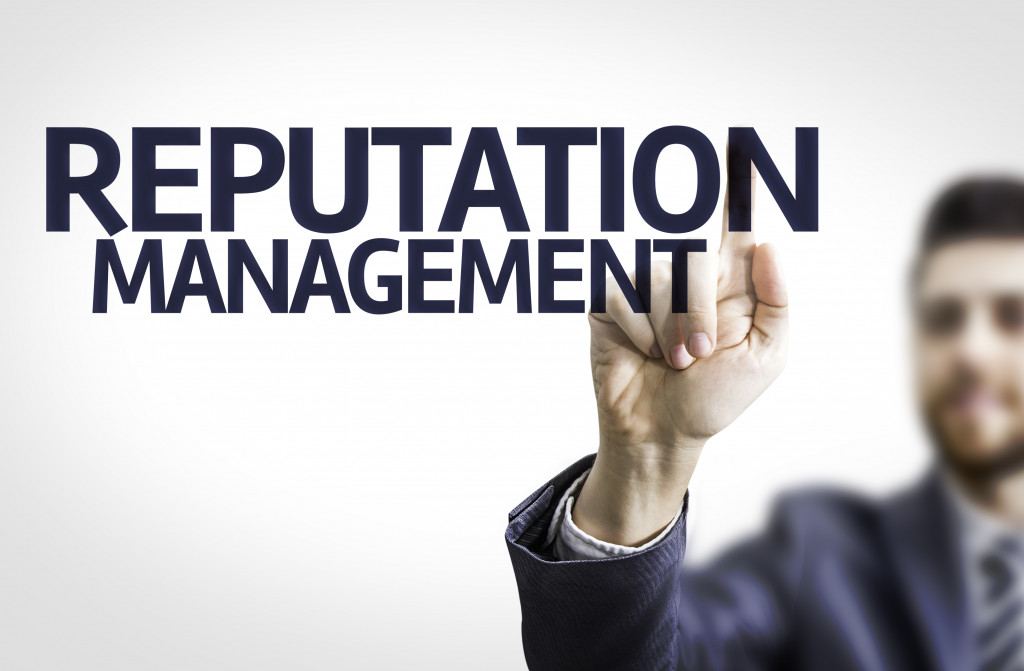- Monitor your online presence and respond promptly, professionally, and tactfully to negative comments or reviews.
- Get the right insurance coverage to protect your business’s reputation if something goes wrong.
- Utilize crisis management strategies and remain calm, professional, and empathetic when responding to customer concerns.
- Protect your business’s reputation by taking proactive measures like press releases or interviews.
- Monitor reviews and ensure customers know you take their feedback seriously.
As an entrepreneur, you already understand that your business’s reputation is one of its most valuable assets. A good reputation can attract customers, build trust, and help your business stand out. Unfortunately, a bad reputation can do quite the opposite and be challenging to recover from. So, how do you protect your business’s reputation? Here are a few tips to keep in mind.
Monitor Your Online Presence
The internet can be a double-edged sword for businesses—it’s great for marketing and visibility, but it also allows anyone to post anything they want about your company without vetting it through an editor or fact-checker. That’s why it’s essential to monitor your online presence regularly.
Keep an eye on websites such as Yelp or Google My Business to ensure that any reviews posted are positive and accurate; if they’re not, respond quickly with professionalism and tact to ensure that customers know you take their feedback seriously. It’s also essential to monitor social media accounts to promptly address negative comments or posts before they have time to spread.
Get Insured

One bad review or incident can have a lasting effect on your business. That’s why you must have the right insurance coverage to protect your reputation should something go wrong. Here are four types of insurance that can help you protect your business’s reputation:
Commercial Property Insurance
Businesses must take out commercial property insurance to protect their physical assets and structures in case of theft, fire, natural disasters, and other unexpected events. This insurance policy covers physical property, including buildings, machinery, inventory, furniture and fixtures, and any additional living expenses incurred while the building is being repaired following a covered event.
Commercial property insurance will cover the cost of repairs or replacements for your business to get back up and running quickly after an unexpected event.
General Liability Insurance
General liability insurance protects businesses against claims related to bodily injury or property damage caused by negligence on behalf of the company or its employees. It also covers legal fees for defending against such claims should they arise.
This type of policy benefits companies that provide services directly to customers since it protects them from lawsuits related to any injury or damage caused while providing those services.
Product Liability Insurance
Product liability insurance protects businesses from lawsuits related to defective products sold or provided by the company. This type of pavers any costs associated with defending against claims resulting from injuries caused by using a defective product and any damages awarded if found liable.
Product liability policies are essential for companies who manufacture products since they provide protection should a customer suffer an injury due to a defect in one of their products.
Product Recall Insurance
Product recall insurance coverage helps protect businesses from losses related to recalling products due to potential health hazards or other issues arising after production has been completed and shipped out into the marketplace.
This policy can cover costs associated with notifying customers about a recall, retrieving recalled items from retailers and distributors, destroying recalled items as required by law, and any other expenses incurred while issuing a recall (i.e., advertising campaigns).
Utilize Crisis Management Strategies

No matter how hard you try, there may come a time when someone posts something negative about your company online—but don’t panic! This is where crisis management strategies come in handy; having a plan ahead of time can mitigate any potential damage quickly and effectively.
First, remain calm and professional in all interactions; this will demonstrate that your company takes customer service seriously so that other customers will form a more favorable opinion of you. Additionally, it’s critical to listen carefully and respond with empathy; understanding where the customer is coming from will show them that their concerns are being taken seriously while demonstrating confidence in yourself and your company.
The Bottom Line
Protecting your business’s reputation is critical for long-term success—and doing so requires effort on both sides of the equation: proactive measures such as press releases or interviews, monitoring reviews, and responding professionally when needed. Fortunately, plenty of strategies and resources are available to help prevent and manage potential negative publicity. With some effort, you can protect your business’s reputation for years.

